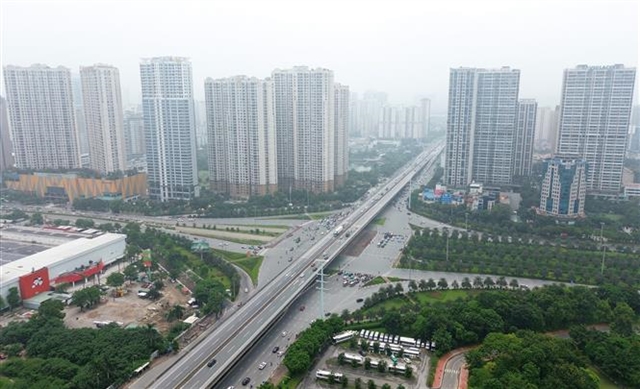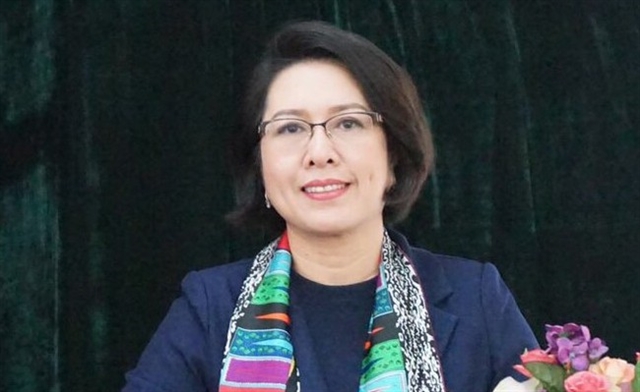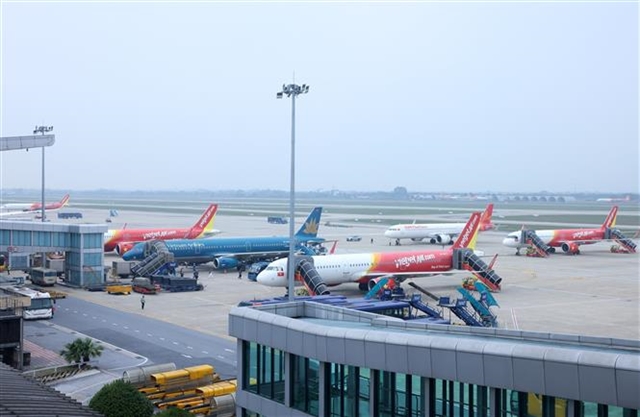 Opinion
Opinion


|
| Dr Trần Thị Hồng Minh. — Photo courtesy of Central Institute for Economic Management |
Dr Trần Thị Hồng Minh, director of the Central Institute for Economic Management of Vietnam, talks with Vietnam News Agency (VNA) on the detailed action plan to restructure the economy in the 2021-25 period.
The Government has recently promulgated Resolution No 54/NQ-CP on the action plan to implement the National Assembly's Resolution No 31/11/QH15 issued last November on restructuring the economy in the 2021-25 period. What is the meaning of this resolution?
The promulgation aims for a comprehensive direction and diligent, effective implementation of the National Assembly’s document, creating a visible transformation in awareness and actions of the Government leaders and staff of all levels and sectors, as well as society, in restructuring the economy and innovating the development model in Việt Nam in the new situation.
The recent resolution also specifies key missions and solutions for the Government, departments and localities to focus on, aiming to successfully achieve the overall and specific objectives set out in Resolution No 31/11/QH15 issued by the National Assembly on November 12, 2021 on restructuring the economy in the 2021-2025 period.
What is your evaluation of the key objectives and contents of the resolution?
The resolution has set out the goals for a reasonable and effective structure in and between each field and sector, as well as the whole economy; developed numerous national products with new, advanced technology; created a breakthrough in the competitiveness of several key economic sectors, as well as a significant and substantial changes in growth models, productivity, quality and efficiency; as well as improved autonomy, adaptability, and resilience of the economy.
The resolution introduces 30 specific criteria that need to be met during the 2021-25 period, five key groups of solutions with 217 detailed tasks and 102 detailed programmes and projects that need to be implemented in the 2022-25 period. These task groups are specifically assigned to departments, ministries and sectors with specific deadlines for transparent responsibilities and to also monitor, supervise and evaluate. The assignment in accordance with the content of each task also ensures the ability to synchronously deploy solutions to achieve the set goals.
What solutions should be focused on to realise those goals?
In my opinion, it is necessary to implement five key groups of solutions with the tasks of each ministry and sector as follows:
Task group 1 includes 42 specific tasks, focusing on fulfilling the objectives of restructuring public investment, State budget, the system of credit institutions and public non-business units.
Task group 2 includes 59 specific tasks to develop different types of markets (finance, land, labour, science and technology), and improve the efficiency and use of resource allocation for socio-economic development.
Task group 3 includes 33 specific tasks to develop the enterprise force; promoting connections between businesses of all economic sectors; innovating and growing the collective economy and cooperatives.
Task group 4 includes 20 detailed tasks to develop the urban economy, strengthen regional linkages, and urban-rural linkages, and utilise the role of key economic regions and big cities.
Task group 5 includes 63 specific tasks to restructure industries towards modernity, develop a green and sustainable economy, and maximise potentials and advantages.
What should be noted in implementation for this process to be effective?
The Government’s resolution requires that leaders at the ministry-level and departments under the government, chairpersons of provincial People’s Committees, and cities under the jurisdiction of the central Government, in accordance with their assigned functions, powers and duties, to immediately put the tasks relating to Resolution No 31/2021/QH15 of the 15th National Assembly and this Government’s resolution into the 2022 and 2021-25 socio-economic development plans; developing and promulgating a plan to implement the Government’s resolution; while also leading the prompt implementation of tasks and solutions according to their authorities, and the actual situation in each field, sector and locality.
At the same time, the resolution assigns the Ministry of Planning and Investment the managerial role to coordinate with ministries, departments and localities in monitoring and ensuring the progress of this Action Programme, periodically reporting to the Government and Prime Minister, while also proposing necessary measures to ensure the synchronous and effective implementation of the Action Programme. The ministry also needs to stay up to date with the working sessions of the Politburo, the central Party Committee and its Secretariat, the National Assembly and its Standing Committee to report according to the regulations.
In the implementation process, if it is necessary to adjust or amend the resolution, ministries, agencies and localities shall proactively propose to the Ministry of Planning and Investment to compile and report to the Government for consideration and a decision — VNS




